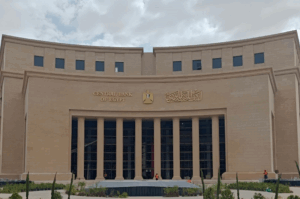
The distinction between a real estate broker and a real estate developer lies in their respective roles and responsibilities within Egypt’s burgeoning real estate sector. The industry is currently experiencing a significant influx of funds, with the government undertaking the establishment of new cities and the private sector actively contributing numerous projects. This diversity has left potential property buyers in a quandary about the optimal choice: should they engage a real estate broker or directly approach a developer to secure their property with confidence? Exploring the fundamental disparities between a broker and a real estate developer, along with an examination of the advantages and disadvantages of each, will provide clear and comprehensive insights into these questions.
What does the term “Broker” mean?
The term “Broker” in common language refers to an intermediary or agent who serves as a link between a client and a developer, working to benefit both parties. The broker persuades the client to purchase a specific unit from a range of options, contributing to increased sales for the developer’s projects. Notably, the broker does not receive commissions from the client; instead, the developer compensates them. This arrangement results in significant benefits for the client when engaging with a real estate broker.
Many clients seeking to understand the distinction between a broker and a real estate developer often believe that dealing directly with the developer may secure a better price for the unit or is a safer option. However, the reality differs. The broker or real estate marketer plays a crucial role in promoting and selling the developer’s projects. Consequently, the developer cannot typically offer a lower price than what is available through the broker to avoid losing this important intermediary.
Simultaneously, real estate marketing companies operate as secure entities with all the necessary government permits to conduct business officially. Their mission is to ensure benefits for all parties involved in the equation—the developer and the client. Ultimately, the broker receives a commission, aligning interests and facilitating a fair transaction.
The roles of real estate developer
In the Egyptian market, several projects are often praised that have contributed, through their developers, to developing new cities, raising added values, and attracting population densities to them, most notably New Capital, Zayed, New Cairo and North Coast.
The real estate developer is considered the manager who is required to develop the project idea, feasibility studies, financing sources, identify the consultant and contractor, and study the marketing and sales strategy in order to contribute to coming up with a project with a civilized direction, and his role is completely different from the contractor and consultant.
The real estate development process begins with the stage of preparing ideas for implementing a project. This stage is considered the most important stage of development, and usually stems from the developer’s vision and full knowledge of the needs of the market and society. Then the developer prepares preliminary financial studies to ensure the feasibility of the project, then moves to a second stage, which is crystallizing the idea and determining the location. Financial studies and preliminary designs are conducted through specialized offices. In the third stage, the developer prepares market studies, final financial feasibility, and designs that qualify him to obtain the necessary licenses for the project.
How does a broker differ from a real estate developer?
A crucial distinction exists between a real estate developer and a real estate marketer or broker. Each field has specific standards and tasks that set it apart from the other. The real estate developer is responsible for overseeing all aspects of the development process, including feasibility studies, market analyses, project conceptualization, assessing investor and societal benefits, engaging with construction companies or contractors, selecting building materials, determining delivery timelines and prices, among other tasks.
On the other hand, the real estate broker acts as an intermediary between the client and the developer, aiming to facilitate the sale of a unit according to the goals and standards set by the developer. In return, the broker receives a commission from the developer.
Which is better, dealing with a real estate broker or a developer?
After understanding the distinctions between a real estate broker and a developer, the pivotal question emerges: as a client looking to purchase a unit in a project, what is the preferable option—directly engaging with the developer or resorting to a broker or broker company? To assist you in making an informed decision, we’ll outline the advantages and disadvantages of each approach:
Purchasing through a Real Estate Broker:
The broker does not charge any commissions to the client; the developer compensates the broker.
Brokers work with multiple developers, offering a wide range of information on various real estate projects.
Dealing with a broker provides access to information about different projects, allowing for a more comprehensive comparison.
Purchasing directly from a Real Estate Developer:
Clients with a preference for a specific developer due to reputation or past experiences may choose to deal directly. Direct dealings with the developer can be advantageous for clients familiar with the developer’s product quality.
Why Depend on a Real Estate Broker?
Lately, many individuals in the real estate industry have opted to avoid engaging with a real estate broker, citing concerns about potential fraud. However, we cannot overlook the crucial role a real estate broker plays for both sellers and buyers. For sellers, the broker aids in assessing the property’s value and determining the optimal price. Utilizing effective marketing tools, the broker facilitates a swift display and sale of the property at the most favorable price.
For buyers, the broker’s extensive experience and knowledge of the real estate market make them the ideal person to find a property at the desired price. Here are the advantages of working with a real estate broker:
Local Expertise: The broker assists in property searches by providing insights into the advantages and disadvantages of the property’s location. They are well-versed in the area’s price levels and service standards, guiding clients to informed decisions.
Negotiation Skills: Proficient in the art of negotiation, the broker ensures the best deal between the seller and the buyer. They can adeptly reach a mutually satisfactory price for the buyer and secure the best possible sale price for the seller.
Market Insight: The broker stays abreast of real estate market conditions, factors influencing it, property prices, and average prices per square meter in the region.
Legal Expertise: Well-versed in legal procedures related to real estate transactions, the broker aids in drafting contracts for both sellers and buyers. They take responsibility for completing all legal procedures securely to finalize the deal.
Ultimately, the real estate broker plays a crucial role in facilitating a suitable deal and ensuring the legal completion of procedures for purchasing a property. However, caution is necessary in selecting the right professional, especially when seeking information about properties prices in Egypt. The chosen broker should possess extensive experience in the real estate market, stay well-informed about market trends, enjoy a reputable standing, and be recognized for their professionalism to avoid falling victim to fraudulent practices.




